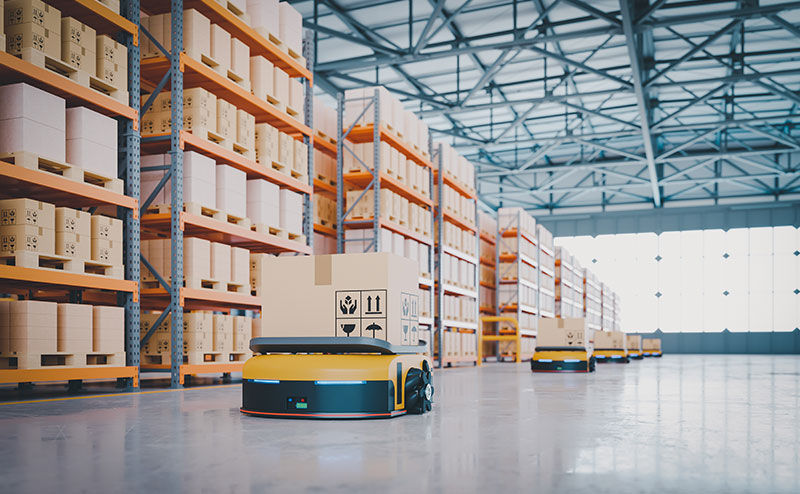Labour win election landslide but what does it mean for UK manufacturing?
Labour has won a landslide victory in the UK general election, with the party securing a huge majority over the Conservatives and sealing Sir Keir Starmer's position as the new Prime Minister.
On a disastrous night for the Conservative Party, the party returned its worst general election result since the Second World War, bringing a harsh end to Rishi Sunak's premiership.
But what could a Labour government mean for UK manufacturing?
Commentators across the political spectrum reacted to the publication of Labour's manifesto by highlighting the cautious nature of the pledges. Certainly, the plan appears less radical than the package of policies presented at the 2019 election, where Labour suffered a heavy defeat under Jeremy Corbyn's leadership.
I am not one for wading into political waters, but as a business owner, I am always looking towards the future to see what is in store for my business, my customers, and my suppliers. With that goal in mind, we surveyed the Labour Party manifesto for clues about their plans for UK manufacturing.
On manufacturing specifically, there is relatively little clear guidance as to what we can expect and certainly no indications of a radical change of approach. Although the manifesto recognises "advanced manufacturing" as an area of strength and outlines funding for automotive and steel sectors, manufacturing itself is mentioned a mere four times in the document.
Stability under a more interventionist state?
Although manufacturing is not a major focus of the manifesto, the document makes clear what the government's priorities for the economy are, and the language used shows clear evidence of a philosophy that is both more cautious than that of previous Labour manifestos but more interventionist than the incumbent Conservative government of Rishi Sunak.
Evidence of that caution can be seen in the emphasis on "strong fiscal rules" which allow for "prudent investment" (p.19). Even more emphasis is placed on the importance of "stability" and providing economic stability, which is the first of Labour's "missions."
This stability is juxtaposed with the perceived "chaos" of the Conservatives. In fact, the word "chaos" appears a staggering 38 times, with repeated references to allegations of "Conservative chaos."
Ultimately, Labour claims to offer a stable business environment for manufacturing businesses. The intention is clearly to provide certainty, with the idea that this climate will be more favourable to investment, which is rightly identified as being too low.
In terms of policies, the decision to cap corporation tax at 25 per cent for the duration of Parliament and the promise of delivering no more than one major fiscal event per year is evidence of this approach.
If an incoming Labour government abides by this notion, we can expect to avoid some of the economic vicissitudes of recent years, notwithstanding the potential for international shocks to upend domestic priorities.
However, while the above emphasis on stability and prudence suggests caution, there is equally clear evidence that a Labour government, true to its traditions, will not shy away from using the powers of the state to intervene in the economy where it deems this supports national priorities.
It argues that markets must be "shaped not merely served," and promises a "dynamic strategic state." This willingness to intervene is reflected in policies like the creation of a National Wealth Fund to use public investment to increase private investment (more on this below) and a new publicly owned energy company, Great British Energy, with £8.3 billion capitalisation over the next Parliament.
What might this mean for British manufacturing? The approach the manifesto outlines is based on partnerships, which involve the notion of the state working together with the private sector and collaborating on more long-term policies.
For example, an Industrial Strategy Council will be established on a statutory footing, which will invite experts from industry and academia. The challenge will be ensuring chosen partners are genuinely representative of UK manufacturing, which is a broad and diverse constituency.
Secondly, the signal towards a more interventionist approach might mean we should expect more public investment and other incentives in those sectors that are highlighted as priorities, such as automotive and clean energy.
The National Wealth Fund
While often thin on details, there are concrete policy commitments with potential implications for manufacturing.
A key policy presented in the manifesto is a plan to establish a National Wealth Fund, capitalised with £7.3 billion to support transformative investments across the UK. In line with the "partnership" philosophy described above, the aim is to attract £3 of private investment for every £1 of public investment.
Other commitments can be found in the mission to make Britain a "clean energy superpower." As part of this mission, Labour is planning to collaborate with the private sector to double onshore wind, triple solar power, and quadruple offshore wind by 2030. Fulfilling this mission would have net-positive implications for British manufacturing.
While those companies directly involved in the manufacture and supply of components for these technologies will benefit from the plans, manufacturers more broadly might look forward to reduced electricity costs if the ambition is fulfilled.
They often say that the devil is in the detail. Manifestos are rarely a place where we find much detail and the Labour Party manifesto is no different. However, the language and philosophy we encounter in its pages suggests that on the one hand, there will be no radical transformation, but on the other, we can expect a government more willing to intervene in support of key economic objectives. Concrete policies such as the National Wealth Fund also highlight sectors where British manufacturing might receive a fillip from greater public investment.


